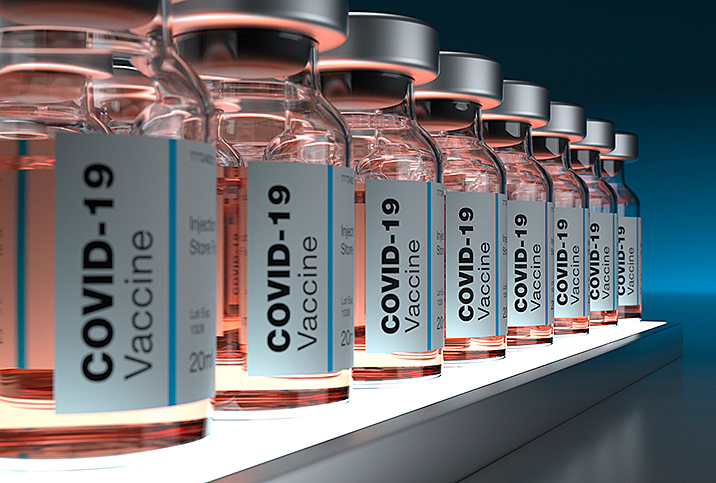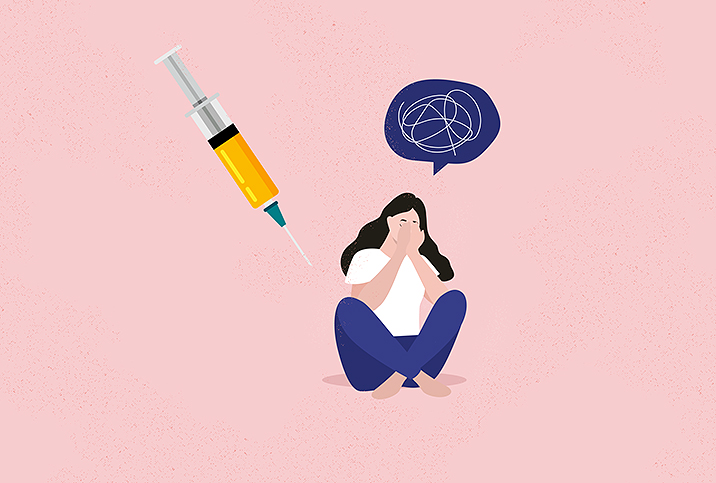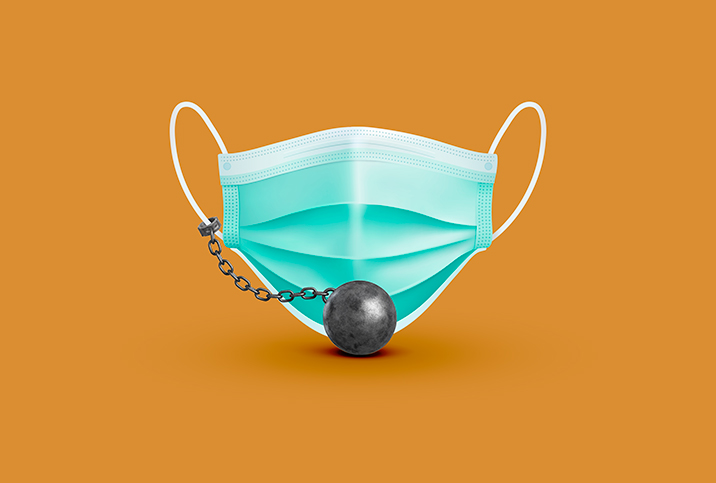Does the COVID-19 Vaccine Cause Irregular Periods?

Taylor works for a gynecologist's office in Columbus, Ohio, where she schedules appointments and surgical procedures. Sometime last spring or early summer—she doesn't remember exactly when—she noted something odd: Patients were requesting appointments because of changes in their periods following their COVID-19 vaccinations.
"Our doctors believed strongly that there was no way it had anything to do with the vaccine," she said. "But then, more and more patients started saying they got the vaccine and their periods changed."
Menstrual cycles can become irregular for any number of reasons. Exercise, diet and stress, for example, all play a role. According to Anita Somani, M.D., a specialist in obstetrics and gynecology at OhioHealth Physician's Group in Columbus, Ohio, the stress of living through a pandemic might be enough to cause changes in a woman's period.
"So many people have cycle changes when they're under stress—even good stress," she said. "Cycle changes happen. One or even two cycles off per year is actually normal."
Stories versus studies
Anecdotal reports are not sufficient to show a direct correlation. Doctors and researchers seek information provided by a randomized control study. If a medication is involved, for example, the method for administration must be "double-blind," meaning neither the participant nor the administrator knows who is receiving the actual dose and who is receiving the placebo.
These studies are much different from anecdotal reports or even retrospective studies, which look back at previously collected data. Unfortunately, some anecdotes cause misinformation to spread.
"We had women who 'heard' that the vaccines caused infertility," Somani said. This rumor was proven to be false.
"Most [health] studies exclude women who are pregnant or trying to become pregnant," she said. "Women who participated [in vaccine trials] had to be on birth control. This created a population base with a low pregnancy rate because people were using birth control."
Immune responses to a COVID-19 vaccine could affect the interplay between immune cells and signals in the uterus, leading to temporary changes in the menstrual cycle.
Interestingly, a study funded by the National Institutes of Health (NIH) showed that COVID-19 vaccination does not reduce chances of conception, but a coronavirus infection can temporarily affect male fertility.
In August 2021, the NIH funded studies at five institutions to explore possible links between the COVID-19 vaccine and menstrual changes.
"These rigorous scientific studies will improve our understanding of the potential effects of COVID-19 vaccines on menstruation, giving people who menstruate more information about what to expect after vaccination and potentially reducing vaccine hesitancy," said NICHD director Diana W. Bianchi, M.D.
The menstrual cycle is regulated by complex interactions between the body's tissues, cells and hormones. Immune responses to a COVID-19 vaccine could affect the interplay between immune cells and signals in the uterus, leading to temporary changes in the menstrual cycle.
Survey says…
The first results of some of those studies became available in January 2022.
"One of the early studies used data from a menstrual tracking app," Somani said. "About 4,000 women participated. Of those, 2,400 were vaccinated and 1,500 were not, which served as the control group. The vaccinated participants had cycles that were one day longer compared to previous cycles. The unvaccinated participants reported no change."
Victoria Male, Ph.D., a lecturer in reproductive immunology at the Imperial College, London, reviewed the study in an editorial in the British Medical Journal. She noted some women who received both doses of the vaccine in the same cycle experienced a two-day delay in their period.
She also discussed a study from the Norwegian Institute of Public Health. The study asked a cohort of 5,688 Norwegians whether they had experienced specific menstrual changes (such as unexpected breakthrough bleeding or worse-than-normal period pain) in the cycles before and after each vaccine dose. More than a third of the participants reported variations in their normal cycles before their vaccination, which demonstrates normal variability in women's periods. That study identified heavier-than-normal bleeding as the change most associated with vaccination.
Male went on to explain that the information reported in both of these studies is reassuring: Changes to the menstrual cycle may occur following vaccination, but changes are small when compared with natural variation. In addition, changes last only one or two cycles. If changes last past the second cycle, Male recommends women check in with their doctor.
Vaccines remain our best defense against viral infections
"All women, without a doubt, should get vaccinated," Somani said. "When I have a patient who isn't vaccinated, I like to try to understand why. In some cases, they need help to understand mRNA technology [used in some of the vaccines]. This technology has been used for other things. The vaccines have been used on a billion people around the world with very few side effects."
She also recommends vaccination for her pregnant patients. Getting vaccinated provides passive protection to a woman's baby. Even more important, pregnant women who get COVID-19 when they haven't been vaccinated have a higher risk of maternal death.
Taylor, meanwhile, will be able to reassure patients that a later period following a COVID-19 vaccine is normal. But because these changes could indicate other problems, if your period isn't back to a pre-vaccination schedule within two cycles, check with your doctor.
And remember that as intriguing as anecdotal sources may be, hysteria can spread quickly. As Somani said, "I ask patients to analyze their sources and remember that misinformation travels faster than facts."


















